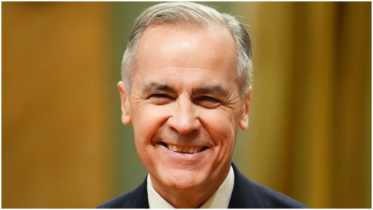US moves to roll back post-2008 bank rules

U.S. regulators are preparing to roll back a major post-crisis bank regulation, in what would mark the most significant easing of capital requirements for large banks in over a decade. The move highlights the Trump administration's ongoing drive to reduce financial regulations.
According to sources familiar with the matter, authorities are expected to propose changes to the Supplementary Leverage Ratio (SLR) in the coming months. The SLR requires large banks to hold a minimum amount of high-quality capital relative to their total exposure, including loans and off-balance sheet items like derivatives. It was introduced in 2014 following the 2008–09 financial crisis to bolster the resilience of the banking sector.
Lobbying Against SLR
Banking industry lobbyists have long opposed the rule, arguing it discourages banks from holding even low-risk assets such as U.S. Treasuries, and limits their ability to provide liquidity and extend credit.
“Penalising banks for holding low-risk assets like Treasuries undermines their ability to support market liquidity during times of stress,” said Greg Baer, CEO of the Bank Policy Institute. “Regulators should act now rather than waiting for the next event.”
Reform proposals are expected to be unveiled by summer.
Deregulation Momentum
The proposed changes come amid a broader deregulatory push by the Trump administration, which has already loosened rules in areas including environmental protections and financial disclosures.
Supporters of the move say reducing the SLR will allow banks to play a larger role in the $29 trillion Treasury market, which could help the government lower borrowing costs. It may also help big banks reclaim trading activity ceded in recent years to hedge funds and high-frequency traders due to stricter capital constraints.
Leading policymakers have signaled their backing. Treasury Secretary Scott Bessent recently called the reform a “high priority,” and Federal Reserve Chair Jay Powell said in February that easing the SLR could be part of broader efforts to improve Treasury market structure.
Critics Raise Concerns
However, critics argue that reducing capital requirements now could pose systemic risks, especially in a period of global uncertainty and market volatility.
“There are all kinds of risks out there — including for U.S. banks — the dollar’s role and the direction of the economy,” said Nicolas Véron, senior fellow at the Peterson Institute for International Economics. “It doesn’t sound like the right time to relax capital standards at all.”
The current rule requires the eight largest U.S. banks to hold at least 5% of their total leverage in top-tier capital, compared to 3.5% to 4.25% required of many large banks in Europe, Canada, China, and Japan. Lobbyists argue that aligning U.S. standards with international norms would level the playing field.
Alternative Proposals and Global Implications
Regulators are also considering a more targeted change — excluding low-risk assets like Treasuries and central bank deposits from leverage calculations, as was temporarily allowed during the COVID-19 pandemic. Analysts at Autonomous Research estimate that reinstating this exemption could free up $2 trillion in balance sheet capacity for major U.S. banks.
However, European regulators warn that such an exemption could create pressure in other regions to offer similar relief for Eurozone sovereign debt or UK gilts.
Despite the potential benefits, analysts note that most large U.S. banks are more constrained by other regulatory tools — such as stress tests and risk-weighted capital rules — limiting how much they would actually benefit from an SLR change. According to Morgan Stanley, State Street is the only major U.S. bank significantly constrained by the current SLR framework.
“Aligning U.S. rules with global standards would provide more capital flexibility than merely exempting Treasuries and deposits,” said Sean Campbell, chief economist at the Financial Services Forum, which represents the eight biggest U.S. banks.
The Federal Reserve, Office of the Comptroller of the Currency (OCC), and Federal Deposit Insurance Corporation (FDIC) declined to comment on the expected reforms.
.png)




